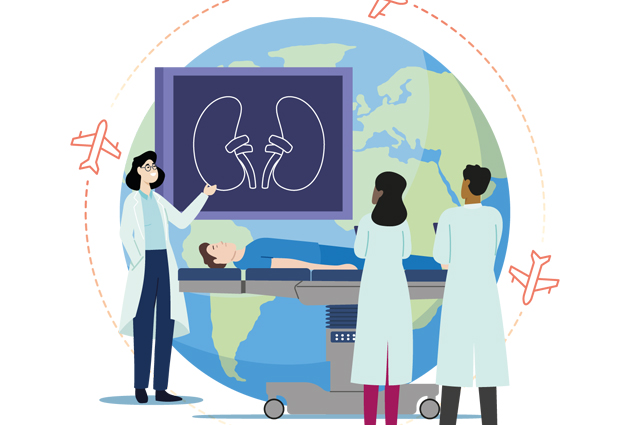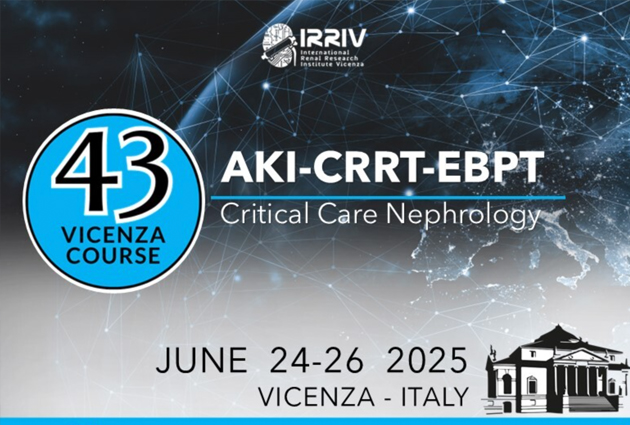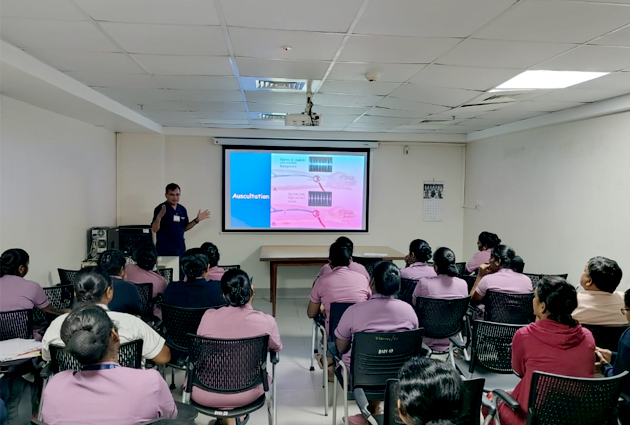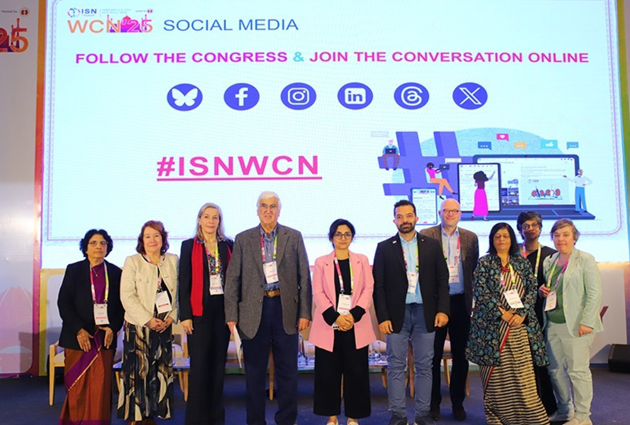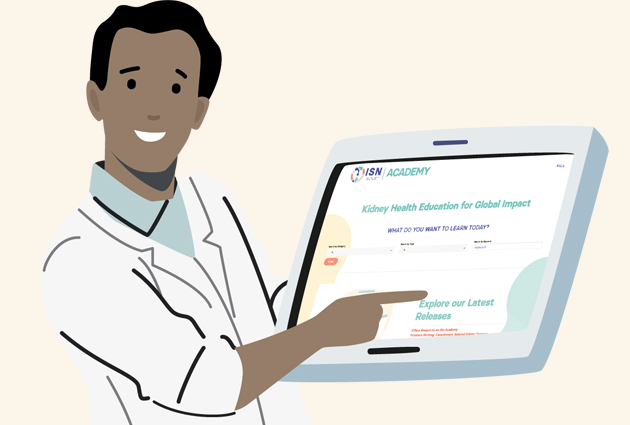Complementary ISN Granting Programs Coordinate to Elevate Nephropathology in Mongolia
Recently graduated ISN Fellow Narnygerel Erdenebileg helped organize a week-long training program supported by the ISN Educational Ambassador (EA) and Continuing Medical Education (CME) Programs in October at the State Second Central Hospital in Ulaanbaatar, Mongolia.
Read more about Dr. Erdenebileg’s ISN Fellowship here.
Participants at one of the seminars during a week of activities supported by the ISN EA and CME Programs in Mongolia
The training included hands-on workshops for local kidney and pathology health professionals, involving:
- Extensive case discussions
- Kidney biopsy interpretation
- Discussions on differential diagnoses
- An evaluation of the Hospital’s kidney pathology lab capacity
In addition, two seminars were held, “Education in Nephropathology” and “Current Diagnosis and Treatment on Glomerular Diseases and Their Histopathology.”
A turning point: Mongolia’s first nephropathology training
The training marked a significant milestone as it was Mongolia’s first nationwide program dedicated to nephropathology. According to Dr. Erdenebileg, the training improved the knowledge and skills of pathologists and nephrologists from around Mongolia and provided a powerful source of motivation for junior pathologists and trainees to pursue nephropathology as a career.
Recent ISN Fellow Dr. Erdenebileg (third from left), Dr. Atta (left of welcome sign), and Dr. Arend (right of welcome sign) alongside staff at the State Second Central Hospital in Ulaanbaatar, Mongolia
ISN Educational Ambassadors’ contribution
The ISN EA Program supported Mohamed Atta, professor of medicine at Johns Hopkins University School of Medicine in Baltimore, USA, to contribute to the program. Dr. Atta was accompanied by his colleague, Lois Arend, associate professor of pathology at Johns Hopkins University School of Medicine. She was supported to attend through the ISN CME Program.
Dr. Lois Arend presents on light microscopy C3GN during a week of training activities at the State Second Central Hospital in Mongolia
Pathologists from the State Second Central Hospital specializing in kidney pathology discussed kidney care issues at length with Dr. Atta and Dr. Arend. The visitors also met with hospital administrators to highlight the importance of training nephropathologists abroad and the need to establish electron microscopy facilities within the country.
Some of the objectives of the training program included:
- Improving renal biopsy techniques
- Implementing electron microscopy
- Raising the standards for diagnosing and treating glomerular diseases to an international level
Addressing challenges in kidney care in Mongolia
According to Dr. Erdenebileg, a pressing concern in Mongolia is the early need for kidney replacement therapy in glomerulonephritis patients due to inadequate diagnosis and treatment. The seminar on glomerular disease supported the country’s goal to reduce this number and enhance overall life expectancy in this group.
Local staff used this opportunity to collaborate with media and other stakeholders to raise public awareness of kidney health issues and the importance of maintaining healthy kidney function.
Dr. Atta (fifth from left) and Dr. Arend (sixth from left) alongside staff at the State Second Central Hospital in Mongolia
Long-term goals: research and collaboration
In the long term, the center wants to expand research initiatives within the hospital and nationwide. Dr. Atta provided input on ongoing research projects in hemodialysis, chronic kidney disease management, and glomerular diseases.
Dr. Erdenebileg commented: “We highly appreciate the ISN’s continuous support since 2014. ISN Educational Ambassador Dr. Atta, who has been visiting us for years, suggested the training in nephropathology, and its impact was huge. The inclusion of two experts simultaneously during the week-long training session proved to be an invaluable asset. It significantly improved our knowledge and capabilities and strengthened our network for future collaborations.”
Read about Dr Atta’s ongoing collaboration with the State Second Central Hospital in Mongolia here.







